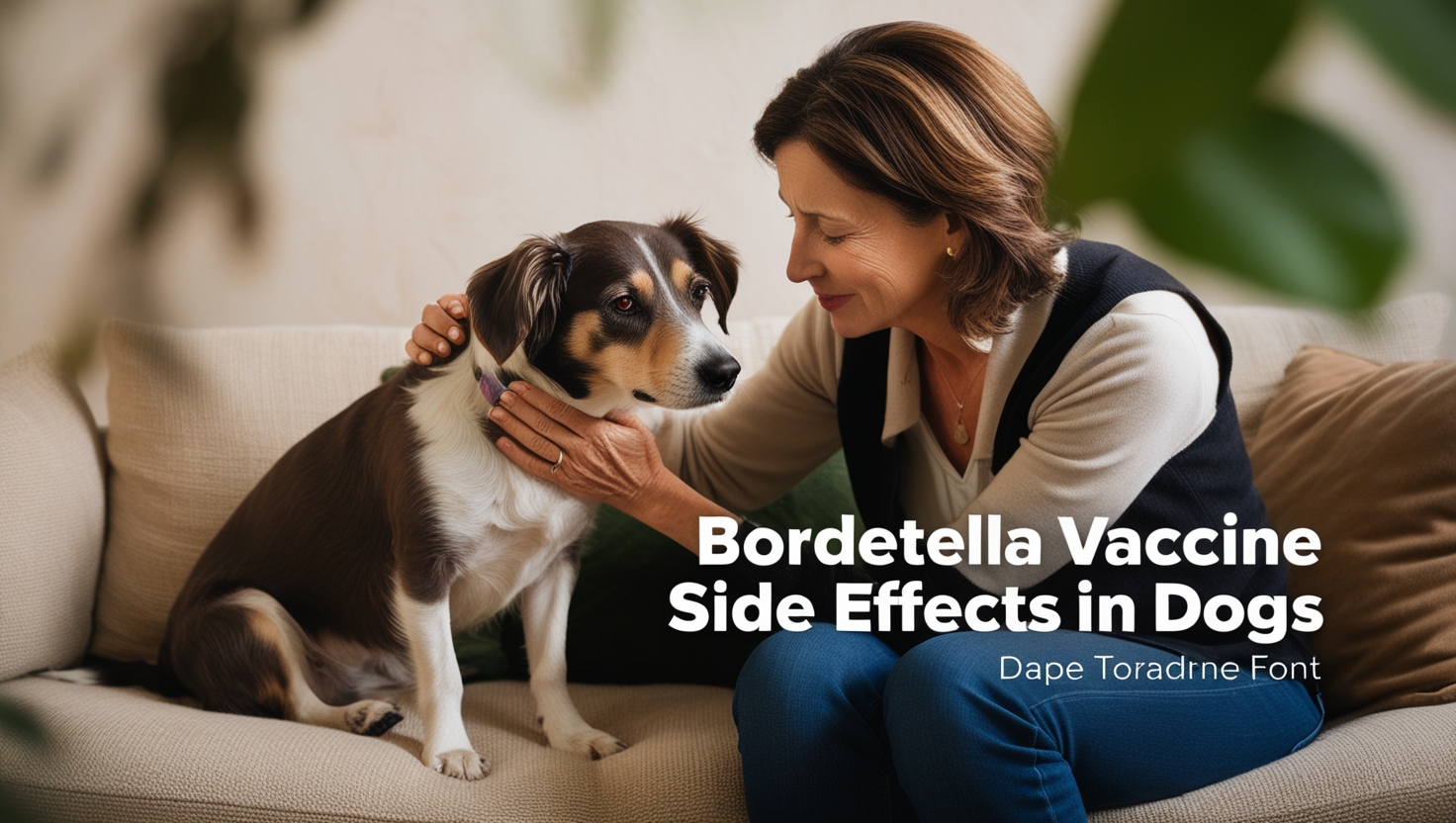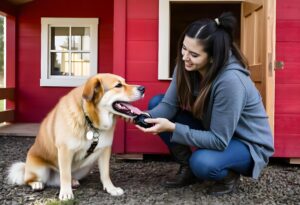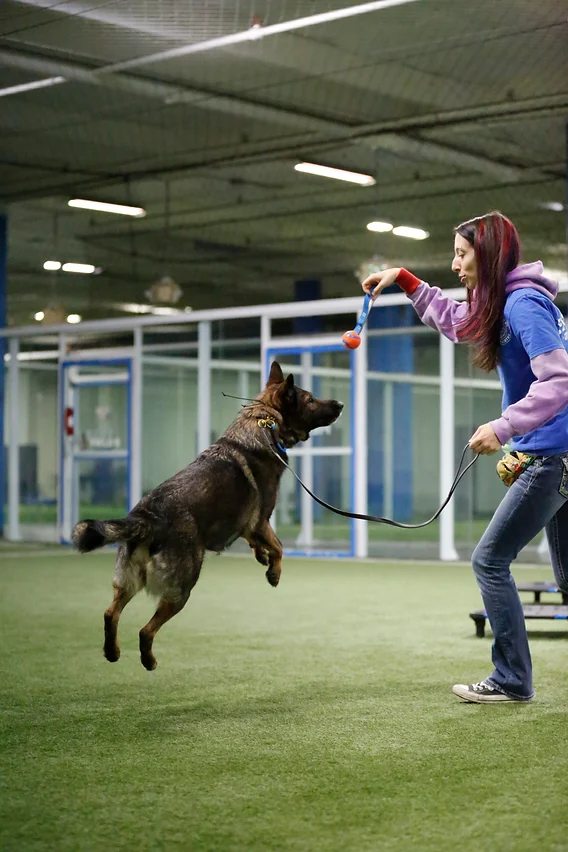Bordetella Vaccine Side Effects in Dogs: What You Need to Know

Bordetella Vaccine Side Effects in Dogs, What You Need to Know
When it comes to keeping your dog healthy, vaccinations play an essential role in preventing dangerous diseases. One of the most common vaccines recommended for dogs is the Bordetella vaccine, which protects against Bordetella bronchiseptica, a bacteria responsible for causing kennel cough. While this vaccine is generally safe and crucial for your dog’s well-being, it’s important for dog owners to understand the potential Bordetella vaccine side effects in dogs.
In this article, we’ll discuss what the Bordetella vaccine does, its possible side effects, how to recognize them, and when to seek veterinary help. By the end of this article, you’ll have a clearer picture of how to ensure your dog’s health after vaccination.
What is the Bordetella Vaccine?
The Bordetella vaccine is designed to protect dogs from Bordetella bronchiseptica, a highly contagious bacterium that causes a respiratory infection commonly known as kennel cough. Kennel cough is often spread in environments where dogs are in close quarters, such as dog parks, kennels, or grooming facilities.
The vaccine is typically administered to dogs at high risk of contracting the disease, particularly if they frequently interact with other dogs. There are two types of Bordetella vaccines: the injectable vaccine and the intranasal vaccine (given in the nose). Both are highly effective at reducing the severity of the illness, but like any vaccine, there may be some Bordetella vaccine side effects in dogs.
Common Bordetella Vaccine Side Effects in Dogs
While the Bordetella vaccine side effects in dogs are generally mild and temporary, it’s essential for pet owners to be aware of potential reactions. Here are the most common side effects:
Mild Lethargy
One of the most common side effects following vaccination is mild lethargy. Some dogs may seem tired or less active for a day or two after receiving the vaccine. This is a normal response as their immune system is reacting to the vaccine and building immunity. If the lethargy lasts for more than a couple of days or becomes severe, it’s important to contact your veterinarian.
Slight Fever
It’s not unusual for dogs to experience a slight increase in body temperature following vaccination. A low-grade fever is a sign that the dog’s immune system is responding appropriately to the vaccine. If your dog’s fever exceeds 103°F or persists for more than 48 hours, you should consult with your vet.
Mild Swelling or Redness at the Injection Site
If your dog receives the injectable Bordetella vaccine, you might notice some mild swelling or redness at the injection site. This is a normal immune response and should subside within a few days. However, if the swelling becomes large or painful, or if you see signs of infection (such as discharge or increased heat), you should reach out to your veterinarian.
Sneezing or Coughing (Intranasal Vaccine)
For dogs receiving the intranasal Bordetella vaccine, it’s common for them to experience some sneezing or coughing immediately after the vaccine is administered. These symptoms are typically short-lived and are due to the vaccine being delivered in the nasal passages. If the symptoms persist or worsen, it’s essential to inform your vet.
Gastrointestinal Upset
Occasionally, dogs may experience mild gastrointestinal upset, such as vomiting or diarrhea, following the Bordetella vaccine side effects in dogs. This side effect is relatively uncommon, but it can occur, especially if your dog is sensitive to vaccines. If the symptoms persist for more than 24 hours or if your dog appears dehydrated, seek veterinary care.
Allergic Reactions
Though rare, some dogs may experience an allergic reaction to the Bordetella vaccine. Signs of an allergic reaction can include swelling of the face or limbs, difficulty breathing, hives, or a sudden collapse. These reactions are considered emergencies, and if you notice any of these symptoms, you should contact your veterinarian immediately.
How to Manage Bordetella Vaccine Side Effects in Dogs

In most cases, the Bordetella vaccine side effects in dogs are mild and resolve on their own within a few days. Here’s how you can help your dog feel better after vaccination:
Provide Comfort: If your dog is feeling lethargic or has a mild fever, ensure they have a comfortable, quiet space to rest. Keep their environment calm and avoid strenuous activity until they recover.
Monitor for Serious Symptoms: While mild symptoms like lethargy and a slight fever are common, it’s crucial to monitor your dog for more serious reactions. If you notice excessive swelling, persistent vomiting, diarrhea, or signs of an allergic reaction, seek veterinary care immediately.
Hydrate and Feed: If your dog experiences gastrointestinal upset, ensure they have access to fresh water at all times. Offer bland food (like boiled chicken and rice) if they’re not eating well. If symptoms persist, consult your vet.
When to Contact Your Veterinarian
If you notice any unusual or severe symptoms following vaccination, it’s always a good idea to consult with your veterinarian. Some rare but serious reactions can occur, and your vet will be able to assess whether your dog is having an adverse reaction or if the symptoms are part of a normal response to the vaccine.
Remember that, in most cases, the Bordetella vaccine side effects in dogs are mild and temporary. They are far outweighed by the benefits of protecting your dog from a potentially severe and contagious illness. If you have concerns or notice anything out of the ordinary, don’t hesitate to contact your vet for guidance.
Conclusion
The Bordetella vaccine side effects in dogs are generally mild and temporary, with most dogs experiencing only minor symptoms such as lethargy, fever, or mild swelling. These reactions are part of the natural immune response as your dog’s body builds protection against kennel cough. By being aware of potential side effects and knowing when to contact your vet, you can ensure your dog stays healthy and safe while benefiting from the protection the vaccine offers.
Overall, the Bordetella vaccine is an important tool in keeping your dog healthy, especially if they interact with other dogs in public spaces. While side effects are possible, they are usually short-lived and easily managed. If you ever have concerns, always reach out to your veterinarian for professional advice and care.






